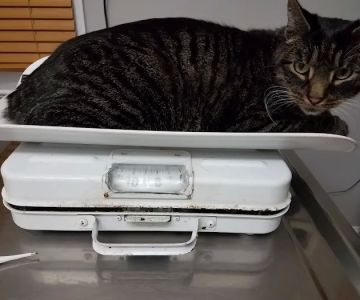Are Veterinary Degrees from Brazil Accepted in Canada?
For those with a veterinary degree from Brazil and aspirations of practicing in Canada, a few key questions arise: Are Brazilian veterinary qualifications recognized in Canada? What is the process for foreign-trained veterinarians to practice in Canada? In this article, we will explore the steps and challenges involved for veterinary graduates from Brazil looking to start their careers in Canada. With the increasing mobility of professionals globally, understanding the recognition of foreign credentials has become an essential part of career planning for international graduates.
1. The Role of Veterinary Medicine in Canada
Canada has a strong and growing demand for veterinary professionals, with veterinary medicine being an integral part of the healthcare system for animals. The Canadian veterinary landscape includes a variety of career opportunities for both domesticated and wildlife care. From rural clinics that serve farm animals to urban practices dealing with pets and exotics, the demand for qualified veterinarians remains high. However, for those holding a veterinary degree from Brazil, the question remains: will their qualifications be recognized?
2. Recognizing Foreign Veterinary Degrees in Canada
In Canada, foreign veterinary degrees, including those from Brazil, are not automatically recognized. Instead, candidates must undergo a credential recognition process to determine whether their qualifications meet Canadian standards. The Veterinary Medical Association of Canada (CVMA) is the body responsible for assessing foreign-trained veterinarians. CVMA evaluates the applicant’s education and professional experience to ensure it aligns with the standards required in Canada.
This process is vital, as veterinary standards vary by country. Canada expects its veterinarians to meet rigorous standards for animal health and care, and the profession is highly regulated. Therefore, it’s crucial for veterinary professionals from Brazil to go through this process in order to practice legally within Canada.
3. The Credentialing Process: What’s Involved?
The credentialing process for foreign-trained veterinarians in Canada involves several steps. These steps are designed to evaluate whether a veterinary degree from Brazil matches Canadian educational standards and professional qualifications. Typically, the process involves the following:
- Assessment of Education: The CVMA will review the applicant’s veterinary degree to determine its equivalence to Canadian qualifications. This often includes an assessment of the academic curriculum and clinical training.
- National Exam: In many cases, foreign-trained veterinarians must pass the North American Veterinary Licensing Examination (NAVLE), which is a comprehensive exam that tests veterinary knowledge and clinical skills.
- Language Proficiency: Proficiency in English or French is also required for practice in Canada, as communication with clients, colleagues, and regulatory bodies is essential in these languages.
- Clinical Experience: Depending on the results of the credential evaluation, applicants may be asked to complete additional clinical experience or internships in Canada before being granted full licensure.
4. Challenges Faced by Brazilian Veterinary Graduates
While many international veterinarians successfully navigate the Canadian credentialing process, Brazilian veterinary graduates may face specific challenges. One significant issue is the differences in veterinary practices and regulations between Brazil and Canada. Brazil's veterinary education system, while comprehensive, may not directly align with the Canadian framework in terms of specific courses, clinical experience, or technical standards.
Furthermore, obtaining a work permit or visa to practice in Canada can be an additional barrier. Some Brazilian veterinarians may need to apply for a work visa or seek employer sponsorship before being allowed to take the necessary exams and begin practicing in Canada. This bureaucratic process can sometimes be a lengthy and complicated experience.
5. What Can You Do to Improve Your Chances?
For Brazilian veterinary graduates looking to increase their chances of successfully practicing in Canada, several steps can help improve the process. One of the most important things to do is to ensure your academic transcripts and qualifications are properly assessed by the CVMA. Keeping thorough documentation of your education and work experience will help expedite the process.
Additionally, gaining experience in Canada, even in a non-licensed capacity, may be beneficial. Working as a veterinary technician or assistant can provide valuable exposure to the Canadian veterinary environment and potentially assist with the licensure process later on.
6. Exploring Other Career Opportunities in Canada for Brazilian Veterinarians
If obtaining full licensure to practice as a veterinarian in Canada proves to be a lengthy or challenging process, there are still plenty of career opportunities for Brazilian graduates. Many veterinarians opt to work in related fields such as animal welfare, research, education, or policy development. Veterinary degrees are often transferable to positions in research or in corporate sectors, such as the pharmaceutical industry.
In addition, some foreign-trained veterinarians work as consultants, helping Canadian veterinary clinics or animal health organizations navigate international veterinary practices. This can be a rewarding career path while continuing to work toward full licensure.
7. The Path Forward: Embracing the Opportunities
Ultimately, while the road to becoming a fully licensed veterinarian in Canada may be long and challenging for those with a veterinary degree from Brazil, the process is not insurmountable. By staying informed about the credentialing requirements, pursuing additional qualifications when necessary, and gaining practical experience, Brazilian veterinarians can open the door to a rewarding career in Canada.
For those considering this path, it’s essential to plan carefully, gather all necessary documentation, and remain patient throughout the process. As the demand for skilled veterinarians continues to grow across Canada, the opportunity to make a difference in the lives of animals and their owners remains a compelling reason to pursue this career in Canada.
SEO Title: Are Veterinary Degrees from Brazil Accepted in Canada? Find Out the Process
SEO Keywords: veterinary degrees from Brazil, foreign veterinary degrees, Canadian veterinary licensure, veterinary practice in Canada, becoming a veterinarian in Canada
SEO Description: Discover the steps required for veterinarians with degrees from Brazil to practice in Canada. Learn about credentialing, exams, and career opportunities for foreign-trained vets in Canada.











